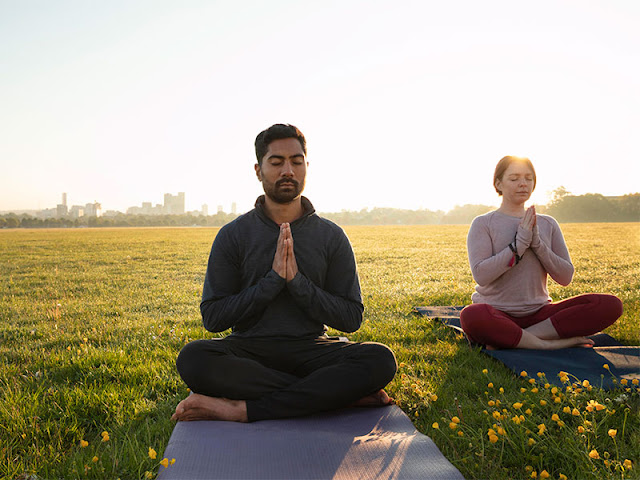Self-introspection is the process of looking within one's own mental processes, emotions, and actions to learn more about oneself. It's an important tool for personal growth and development and can help you become more self-aware, make better decisions, and live a more fulfilling life. But why self introspection is so important?
Why Self Introspection?
- Gaining insights into own views
Gaining insight into one's views and ideals is a significant benefit of introspection. By taking stock of your internal experiences, you can learn more about yourself, your values, and your priorities. If you value honesty and integrity, you may be more likely to speak up when you witness injustice.
- To Discover any roadblocks in life
Introspection can also shed light on where you might be encountering roadblocks or stagnation in your life. Understanding the origins of these difficulties and creating plans to solve them can be achieved through introspective self-analysis. If you're having trouble in a certain relationship, for instance, you might be able to figure out what negative habits are fueling the situation and strive to alter them.
- Enhance social interactions
Self-reflection also has the bonus of enhancing your social interactions with others. It helps to know yourself and your emotions inside and out to better empathize with others. This can help you communicate more effectively, resolve disagreements more easily, and develop greater ties with the people in your life.
Visit: how to develop courage in workplace
- Success in professional life
Success in your professional life can also benefit from some introspection on your part. The best way to grow is to take stock of your abilities and identify where you might use some work. This can make you a better leader, improve your connections at work, and propel you forward in your career. However, if you are someone who is struggling with your professional life, you can consider enrolling in a good personality development course.
- Bounce back from failures
Reflection on one's own experiences might also strengthen one's ability to bounce back quickly from failures. A stronger capacity for self-care and self-awareness can be attained through introspection. As a result, you will be better able to recover from setbacks and keep your optimism in the face of hardship.
- Challenges in self-introspection
Despite its advantages, many people find it difficult to reflect inward. Confronting your shortcomings and inadequacies and being impartial about your ideas and feelings can be challenging. Self-reflection is a skill that, like any other, improves with use.
Visit: habits of curious people
How to do self-introspection?
According to the best personality development trainer, developing a habit of introspection can be done in a variety of ways. One method is to give yourself some alone time in a peaceful setting without interruption. This could mean going to a serene outdoor location or designing a tranquil space at home.
- Another useful method of introspection is keeping a journal. Understanding your cognitive processes and habits can be facilitated by keeping a journal. Alternatively, you could inquire, "What am I experiencing right now?" or "What can I do to improve this situation?" yourself, both of which are open-ended queries.
- You can learn more about who you are and how you tick by reflecting on your past. The best way to improve is to take stock of one's prior achievements and setbacks, then devise methods for capitalizing on one's strengths and compensating for one's deficiencies.
- Mindfulness training may also aid in the maturation of introspection. By being mindful of your inner experience right now, you can learn more about how your mind works. Practicing mindfulness can aid in concentration and the presence of the mind, even when under duress.
- Another useful method of self-reflection is to ask for input from those around you. You can learn a lot about your strengths and areas where you could use improvement by soliciting objective feedback from people you trust, such as friends, family, and coworkers.
Visit: how to criticism at work
How to turn it into a habit?
Self-introspection is a very individual practice, and you are the most qualified to evaluate your mental state. While the input of others is valuable, it is ultimately up to you to do the necessary introspection and apply your newfound knowledge to make the best choices for yourself.
- To make introspection a habit, it can be useful to schedule time for it regularly, such as once a day or once a week. You could do this by setting aside time every day to write in a journal or meditate or by setting aside time every week to think about your progress toward your goals.
- It's also crucial to approach self-introspection with curiosity and openness. Instead of being critical of or judgmental of yourself, try approaching your internal experiences with curiosity and acceptance. You can learn more about yourself and cultivate more compassion and empathy if you do this.
- One must remember that self-introspection is a continuing process. As you physically develop and mature, your mental and emotional states change with time. By making self-introspection a regular practice, you can continue to develop your understanding of yourself and cultivate greater self-awareness and self-compassion throughout your life.
Visit: how to practice active listening
In conclusion
Self-reflection is an effective strategy for progress in all areas of life. By taking an introspective look into your inner world, you can learn more about who you are, where you stand, and where you want to go. While self-introspection can be tough, with practice, it can become a regular and gratifying part of your everyday life. So, think about how you feel and think, and see what you can learn about yourself and the world. We hope this article helps you understand why self-introspection is so important.



